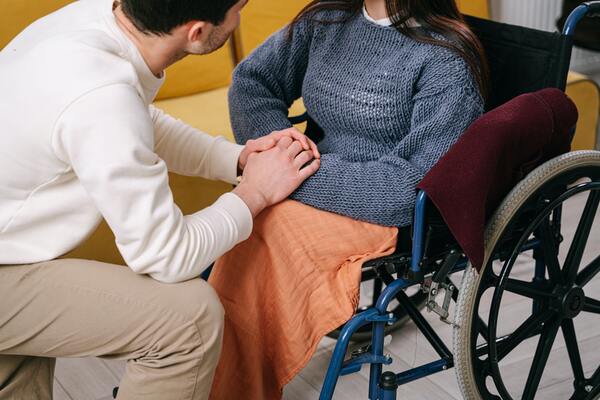
CNAs, personal care workers, and other health aides are a crucial part of the healthcare system in the United States. While they do not prescribe medication or create treatment plans, their hands-on role with patients makes them the backbone of facilities across the country. Unfortunately, direct care providers are also the most likely to suffer physical aggression or violence at the hands of patients and patients’ family members.
If you’ve been injured while working as a caregiver, you may be entitled to compensation for your lost wages and medical expenses. Let us help you explore your options. We’re ready to meet with you over Zoom and sign documents online with DocuSign, so you can spend more time at home recuperating. Call Pisegna & Zimmerman at 818-888-8888 to get started.
To start, it’s important to understand the extremely high standards caregivers are expected to meet. Rightfully so, of course—they are taking care of some of the most vulnerable members of society. However, these expectations extend to the mistreatment that care providers are exposed to. When patients are verbally or physically aggressive, care providers are often expected to simply “take it” and avoid doing anything that would reflect poorly back on their employer—including reporting the assault.
This is an enormous amount of stress to put on employees, especially those that already work nights and weekends, have incredibly large workloads, and are among the lowest-paid professionals in many healthcare facilities.
There’s a lot of research about violence and aggression against caretakers. In one study that focused on dementia and severe aggression, it’s noted that more than 20% of caretakers of individuals with dementia are subject to violence at some point. Research also indicates that chemical restraints are not effective, which means care providers are often limited in what they can do. Another piece of research found that over 28% of caregivers had experienced violence in their line of work. Caregivers targeted by violence reported higher rates of depression and caregiver burden.
Although this has been an issue for as long as caregivers have been around, it is definitely becoming more serious. Data from the Hospital + Healthsystem of Pennsylvania focuses on national caregiver violence statistics. From 2010 to 2020, violence against all healthcare workers doubled, and almost 400 people were killed during assaults. Despite making up 12% of the United States workforce, caregivers experience 73% of nonfatal workplace violence injuries.
When employees experience workplace violence, they’re often confused about what to do next. In some situations, they are able to report the attack to the police. In other settings, that isn’t an option. With the care provider shortage getting worse by the day, supervisors and managers are often unable or unwilling to ensure that caregivers are not placed with patients who have been violent towards them. Although California law does allow for workplace violence restraining orders, they must be requested by the employer. Additionally, California is one of a handful of states with workplace violence laws that protect healthcare workers.
As an injured employee, you may be entitled to workers’ compensation. California’s workers’ compensation system allows injured workers to recover partial lost wages and receive care free of charge. It’s important to use this option if you require care or time off after a workplace attack. A lot of caregivers don’t report patient attacks if the patient in question has dementia or is otherwise considered to have an altered mental status. However, these incidents are still considered acts of workplace violence, and they must be reported.
Depending on the circumstances of the attack and your injury, you may be entitled to additional compensation via a personal injury claim. However, this is a nuanced area of law, as the workers’ compensation system does limit when and how an injured worker can file a personal injury claim. It’s important to talk about this option with your attorney.
If your employer doesn’t file a workers’ compensation claim, asks you to seek medical care under your own health insurance, lie about what caused your injuries, or otherwise interferes with your claim, talk to an attorney immediately. Your ability to receive workers’ compensation is in jeopardy.
The team at Pisegna & Zimmerman is here to help you through your workers’ compensation claim. We can meet online over Zoom and sign documents virtually with DocuSign, giving you the time and space you need to heal. Call us at 818-888-8888 or get in touch online to set up a consultation now.
With over 60 years of combined experience, our boutique firm allows us to take the time to give our clients the expertise and attention that their matter deserves. We are a full-service workers' compensation law firm dedicated to obtaining the maximum amount of compensation from all available sources. At Pisegna & Zimmerman, LLC our clients are our main priority. Call our office today and see how our team can help you!Handling Workers' Compensation Claims Throughout Los AngelesWhen you suffer a work injury, the workers’ compensation attorneys at Pisegna & Zimmerman are here to help you get the workers’ compensation benefits you deserve. It is our goal to get you the benefits you need as quickly and seamlessly as possible. We handle workers' compensation claims throughout LA County including Woodland Hills, and throughout the San Fernando Valley.... View full business profile here: William Zimmerman


